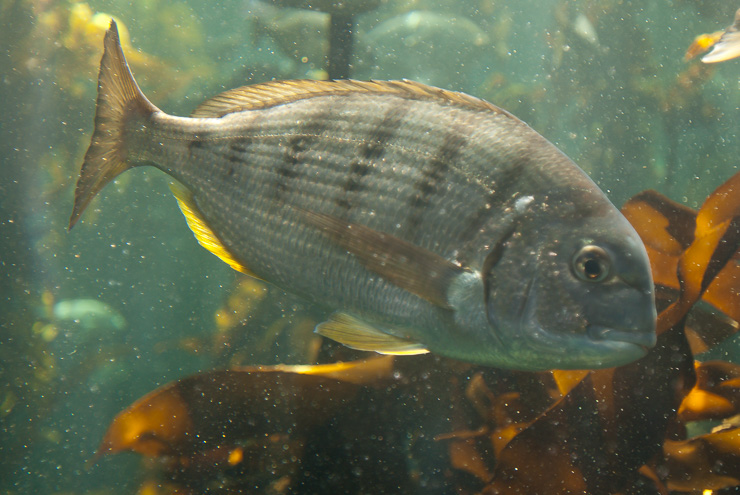
22 Jan Open letter to the Minister on Tsitsikamma MPA
After Oxpeckers published articles on the opening of the Tsitsikamma protected area to fishing, a marine scientist sent us an open letter addressed to the Minister explaining why this is a bad idea

No scientific consultation or planning has gone into the proposed changes to the park. ©Peter Chadwick
Dear Minister,
I write to urge you to reconsider the recently published draft Regulations for the Management of the Tsitsikamma National Park Marine Protected Area. Many scientists working for your department (Department of Environmental Affairs), or for institutions affiliated with DEA, are concerned about the proposed regulations, yet are not allowed to provide public comment.
I am one of them. I remain anonymous for fear of losing my job.
Unlike past decision makers, we now have the scientific information and it is straightforward: our valuable marine resources, and the rich services they provide to society, will continue to erode without a substantial network of marine protected areas (MPAs), closed to all forms of exploitation. The science as well as national and international conservation targets are explicit: we need MORE marine protection, not less.
I urge you to look at the recent study by *Edgar et al. (2014), which was published in Nature, the most prestigious science journal worldwide. That study, which included South African scientists, investigated the fish populations inside and outside 87 MPAs around the world.
Their findings are clear: to be effective, MPAs need at least four out of five requirements in place: 1. no-take (i.e. no fishing), 2. well enforced, 3. old (10 years or more), 4. large and 5. isolated from heavily fished areas.
Tsitsikamma MPA was one of the few “successful” examples included in this study. The park currently meets four of the five criteria. Your proposed re-zoning of this MPA, to open four substantial stretches of coastline to fishing by local communities, will compromise the efficacy of this world-leading MPA.
From the perspective of organisms living on or near the shore, the four proposed fishing zones will break up this well-protected, large MPA into five smaller, less effective MPAs.
There are real concerns and challenges regarding the benefits to local communities of this MPA. But to carve up the oldest (and one of the most effective) MPAs in Africa into five coastal stretches, so that a select group of people (based on their address) can have access to recreational fishing, cannot be rationally justified.
I have spoken to the marine science community and they have confirmed that no scientific consultation or planning has gone into the proposed changes to the park. SA has an array of institutions with the expertise to solve this in the correct, accountable and transparent way.
Please do not exclude the scientists from such important decisions.
Yours sincerely,
A concerned marine scientist
Public comment on the proposed re-zoning runs until February 1 2016. Details can be found here.
Read “Marine ‘Kruger park’ opened for fishing” here
“Small victory for marine protected area” here
